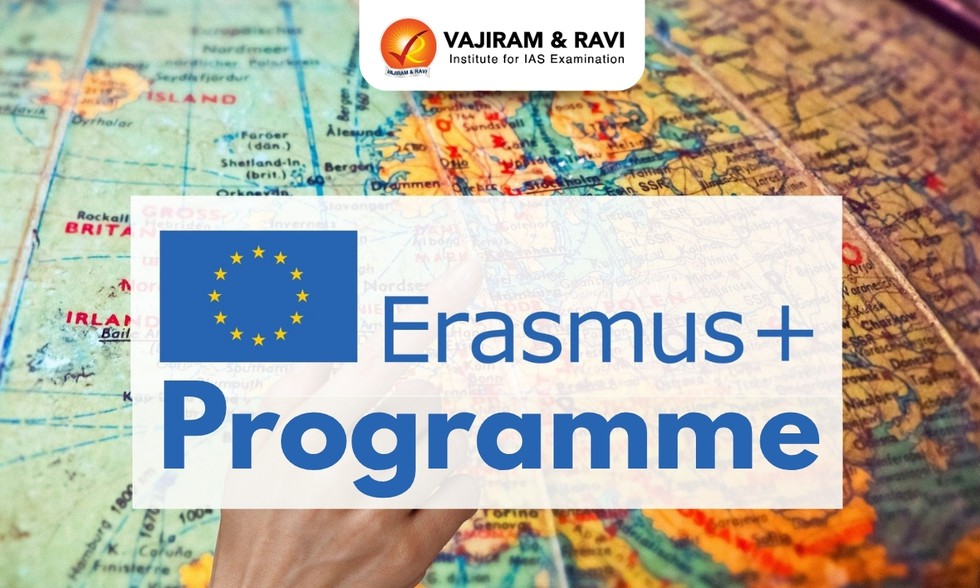About Erasmus+ Programme:
- The Erasmus+ programme, launched in 1987, is the European Union’s flagship initiative supporting international academic mobility.
- The scholarship allows students to study at two or more European universities and earn joint, double, or multiple degrees.
- It covers tuition fees, travel costs, and living expenses.
- It will support young people, students, and adults in education, training, traineeships, or volunteering abroad, enabling them to expand their skills and competence.
- Erasmus+ also offers educational institutions and organisations opportunities for European cooperation with their international partners.
- In addition to offering grants, Erasmus+ also supports teaching, research, networking and policy debate on EU topics. The sports chapter promotes grassroots activities in sports.
- The objectives of the Erasmus+ programme are to
- support people’s educational, professional, and personal development in the fields of education, training, youth, and sport in Europe and the partner countries;
- promote growth, employment, social cohesion, and innovation;
- strengthen European identity and active citizenship.
- In addition, Erasmus+ promotes:
- learning mobility of pupils, students, teachers, and trainers, and cooperation, participation, excellence, creativity, and innovation at the level of organisations in the field of education and training;
- non-formal learning and active participation of young people and youth workers, and the cooperation, participation, creativity, and innovation of youth organisations;
- learning mobility of sport coaches and staff, and cooperation, inclusion, creativity, and innovation at the level of sport organisations;
- As a student, you have the possibility to:
- Study abroad (2 to 12 months)
- Do an internship abroad (2 to 12 months)
- Take part in Erasmus Mundus Joint Masters (1 to 2 academic years)
- The programme is managed by the European Commission (the EU's executive body), the Education, Audiovisual, and Culture Executive Agency (EACEA), a series of National Agencies in Program countries, and a series of National Offices in some partner countries.
